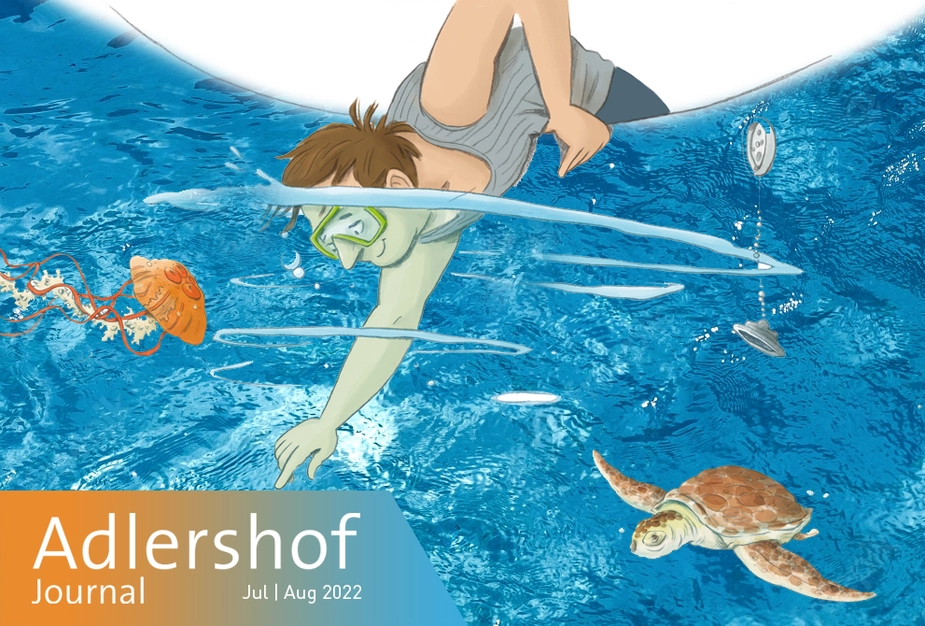Jump into the (cold) deep end!
Essay by Uli Kunz, marine biologist, underwater photographer, and environmentalist
My first underwater experience was certainly not my bravest. After encountering a scary pike in Lake Constance as an eight year old, I made a hasty escape. It took a few days of recuperation before I dared another attempt at diving in my bathtub. However, the fear was gone. Much later in life, I completed an apprenticeship as a research diver and took part in many ocean expeditions.
Many people are afraid of dark waters and deep seas. I feel like it’s time to put those fears aside. These mighty waters should be as emotionally close to us as our native woodlands.
The ocean is by far the largest habitat on our planet. It is the basis of the livelihoods of a large part of the world’s population. Coral reefs act as effective coastal protection, the oceans regulate the climate, and are home to hundreds of thousands of species of animals and plants. Half of the oxygen you breathe in with each breath comes from (healthy) oceans.
For years now, we have been witnessing a change that many animals and plants cannot adapt to: Ocean warming is destroying coral reefs. Acidification affects important microorganisms in the water. The ocean’s ginormous schools of fish are disappearing due to overfishing. On top of all that, millions of tons of plastic waste are dumped into these sensitive habitats every year.
If we want to preserve this magnificent diversity and unique underwater habitats and ensure that as many species as possible survive this global change, we must first change ourselves and bring our way of thinking and our actions – both on a private and societal level – on a path that enables us to treat the oceans in a sustainable way.
To this end, we must change the way we look at the world, much like astronauts change their perspective after seeing planet earth from space for the first time. This phenomenon is sometimes called the “overview effect”, these feelings of reverence and emotional understanding for life on earth. I will never go to space, but I can very much relate to how these astronauts must feel. I believe they will also understand me because they know that this reverence can catch you by surprise at any time, for example, when observing hunting orcas, or when turning off the light in an underwater cave, thus experiencing a type of darkness that is confusing at first but also inexplicably pleasant.
Our new government has also realised the immense potential of the oceans and formulated the following sentence in the coalition agreement in a paragraph on “Natural climate protection”: “We will improve the natural CO2 storage capacity of the oceans through a targeted development programme (seagrass meadows, kelp forests).” Bravo!
Every jump into the literal deep end or look under the water’s surface changes our life. Try it yourself! After re-emerging, you will have made a learning experience that will change your capacity for emotion (if the water was very cold, the feeling in your legs will return, trust me).
The more people take an interest in the tiny and the enormous, the cute and the ugly, the inconspicuous and the colourful inhabitants of the ocean, the greater the number of people will be advocating a more sustainable way of using the oceans.
Uli Kunz is a marine biologist, who works as a host for the ZDF series “Terra X” and gives presentations about his travels and activities as a marine researcher, underwater photographer, and environmentalist. His most recent book “Leidenschaft OZEAN” was published by Knesebeck Verlag: www.knesebeck-verlag.de/leidenschaft_ozean/t-1/987
